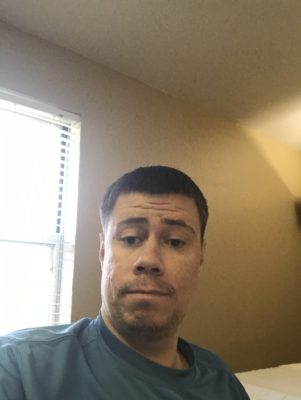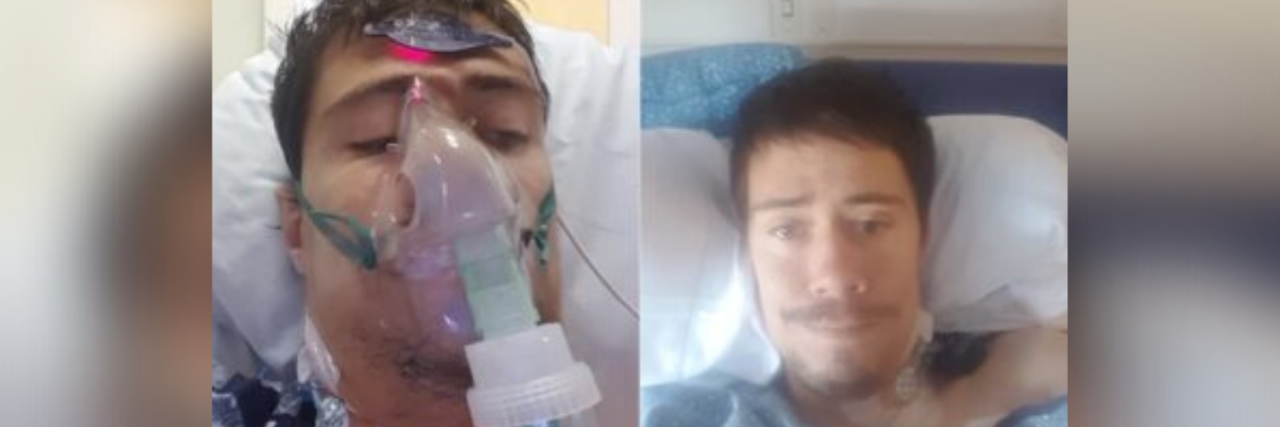How the Fight to Keep My Body Alive Involved Mental Health, Too
Editor's Note
Please see a doctor before starting or stopping a medication.
On October 8, 2018, I went to battle for the third time in my life with the deadly blood infection known as sepsis and a peritoneal infection known as Fournier’s gangrene. A 14-month battle for my health that is still ongoing as I write this, and which covered the states of Oklahoma and Massachusetts. It is important to note I had a decubitus ulcer that needed follow-up treatment, which was supposed to happen on my return to Oklahoma. However, I never made my return flights.
Leading up to October 8, I felt generally not great when I flew into Providence, RI. However, I thought it was just a cold or the flu. No big deal, people deal with that all the time and it wasn’t like I was feeling feverish. I just had a sore throat and a cough (or so I thought) — nothing that should stop me from being in my friend’s wedding party. So, I tried to power through. Nyquil, Dayquil, Emergen-C … you name it, I took it in the hopes this was just a cold. By that fateful Monday, it became clear this was more.
I was even more miserable (to the point I actually missed the wedding because I was not in good shape), and I knew something was very wrong when I looked down and realized I had necrotic areas down below. I went to the local hospital. Knowing what I know now, it turned out to be the smartest thing I did that week. I realize now that had I tried to fly back to Oklahoma on the ninth (as originally planned), I may have been dead before my flight touched down at the airport. As it stood, I was very ill and even needed to be intubated for three days.
Thus began a series of surgeries — eight in all related to the sepsis/Fournier’s gangrene, and later osteomyelitis and gallbladder removal in July for a total of nine surgeries. The series of hospitalizations have nearly wiped out an entire year of my life (including that first 59 days where I essentially lived in Massachusetts). There was a new colostomy I had never had experience with, and oh yeah, did I mention I almost died in all this?
Through it all, I had to somehow fight for my life and my mental health. As it is, I have anxiety and depression, both which are hellacious to deal with in “normal” times. Now add being in and out of hospitals and the death of my last surviving grandparent in January. It’s enough to crack anybody and I’m not ashamed to admit it did crack me numerous times. Not going home for Christmas last year hurt really bad … especially since my stepfather underwent heart surgery just days after I returned from Massachusetts. So Christmas ended up being in Alabama, but I wasn’t cleared for travel. (I am this year and am looking forward to Christmas with the family.) I admit I may have had a lot of people fooled at times with how strong I seemed, but (and here’s the key) I wasn’t fooling myself. I was frequently upset, worried and stressed out. I went from not sleeping for two to three days, to doing nothing but sleep on the weekends when there was no physical or occupational therapy. My mood swung wildly — sometimes hour by hour. There were days I had high energy at noon, only to crash into depression by 2 p.m.
My most recent long-term hospitalization from August to mid-November this year for round two with osteomyelitis cracked me. When I hit the one year mark on October 8, 2019, I thought I’d be elated I survived something a lot of people do not walk away from. But not that day. That morning I was told I had possible cellulitis on my right foot. Following that with the hard realization that afternoon that yes, I really had spent all year either in hospitals or on home health care, actually got to me. To the point I broke down in tears in the middle of physical therapy. I literally had to stop the session because I didn’t have the mental strength to go forward anymore. I was done.
I’ve always had the attitude I would beat anything that stood in my path. I knew no other way. But, I called my mom that night crying, because I was a scared 34-year-old who needed his mother right then (and Mom would end up driving to Oklahoma City that Saturday, purely to surprise me and help me feel better). I have learned there should be no shame in needing emotional support from your family (or anyone else).
I also learned there should be no shame in needing to increase your medications to get through the hardest days. I actually had to have the doctor do just that in October this year — because I was in a very dark mental place before my mom’s visit and I knew I was prone to go back there anytime.
Unfortunately, I also realized this year there’s still stigma with mental illness, even though I didn’t personally experience that. People who need medication or mental support from family are still made to feel shame. We have to do better with that in 2020 and beyond. We have to normalize needing medical treatment for depression, anxiety, bipolar disorder — all of it. We have got to stop victim blaming.

It is my hope that writing this will help someone who’s going through a long-term hospitalization for a life-altering diagnosis. I want you to know it is OK to break down mentally. It’s OK to need help beyond just the needs associated with the initial illness. Please don’t hesitate to ask your attending physician, a social worker, family — anybody — for help. It was the best thing I could have done and I’m glad I did.
Original photo by author

